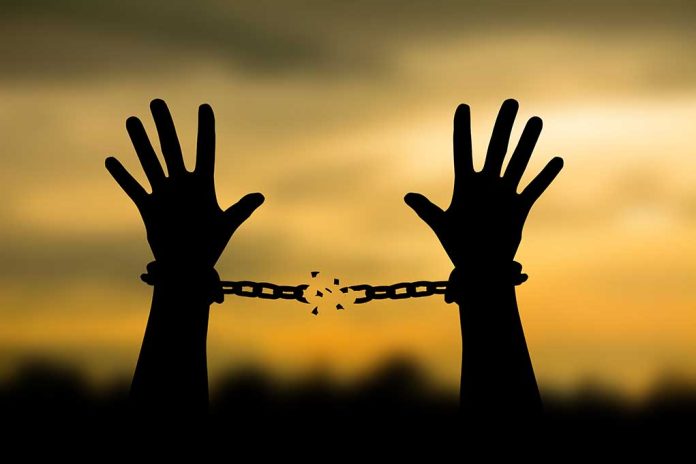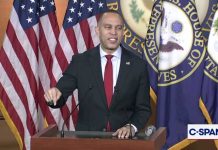
President Donald Trump has issued pardons for nearly 1,500 individuals connected to the January 6 Capitol events, focusing on non-violent offenders and commuting 14 sentences.
Key Takeaways
- Trump pardoned approximately 1,500 individuals charged and convicted in connection with the January 6, 2021, U.S. Capitol incident.
- The pardons primarily focus on non-violent offenders, with 14 sentences being commuted.
- Trump described those charged as “hostages” who were unjustly prosecuted.
- The Justice Department has been ordered to dismiss all pending indictments against Jan. 6 defendants with ongoing cases.
- Vice President-elect JD Vance supports a delineated approach where violent offenders remain accountable.
Trump’s Clemency Decision
In a move aligned with his campaign rhetoric, President Donald Trump has taken decisive action regarding the January 6 Capitol participants. The president has issued pardons for nearly 1,500 individuals connected to the events, with a particular focus on non-violent offenders. Additionally, 14 sentences have been commuted, including those of prominent figures such as Enrique Tarrio of the Proud Boys and Stewart Rhodes, founder of the Oath Keepers.
Trump’s decision to address what he terms as “J6 hostages” aims to reassess the fairness of punishments meted out to those involved in the Capitol incident. The presidential proclamation seeks to end what Trump describes as a “grave national injustice” and initiate a process of national reconciliation.
Scope and Impact of Pardons
The pardons cover a wide range of individuals charged with federal crimes related to the January 6 events. Over 1,500 people have been charged, with more than 900 convictions to date. The charges have included destruction of government property, assault, and seditious conspiracy, with over 160 individuals charged with using a deadly weapon or causing serious injury to an officer.
“What they’ve done to these people is outrageous” – Trump
Trump’s administration aims to individually analyze these cases to prevent any undue legal consequences. The president has ordered the Justice Department to dismiss all pending indictments against Jan. 6 defendants with ongoing cases, signaling a comprehensive approach to address the legal fallout from the Capitol incident.
Reactions and Implications
The decision has sparked diverse reactions across the political spectrum. A Scripps News/Ipsos poll showed that 64% of respondents opposed pardoning January 6 defendants, with 68% of Independents against it. However, 56% of Republicans supported the move, highlighting the partisan divide on this issue.
“I don’t want to admit guilt because I didn’t know I was breaking the law. They told me I wasn’t. So, as cool as having a presidential pardon would be, I’ve been increasingly in the past week thinking, yeah, I’m not gonna put in for that.” – Brandon Fellows
Vice President-elect JD Vance and Attorney General pick Pam Bondi have expressed reservations about pardoning those who committed violence on Jan. 6. This stance aligns with the administration’s focus on non-violent offenders and suggests a nuanced approach to addressing the legal consequences of the Capitol incident.
President Donald Trump has pardoned about 1,500 of those charged and convicted of offenses related to the Jan. 6, 2021, U.S. Capitol insurrection. https://t.co/cLsoFfqq8x
— Fox 4 News (@Fox4Now) January 21, 2025
Constitutional Authority and Precedent
The president’s authority to grant pardons for federal offenses is derived from Article II of the Constitution, except in cases of impeachment. Trump’s use of this power in relation to the January 6 events follows a tradition of presidents exercising clemency, often controversially, in their final days in office.
“If they were non-violent, I think they’ve been greatly punished. They’ve suffered greatly, and in many cases, they should not have suffered.” – President Donald Trump
As the nation grapples with the implications of these pardons, the debate continues over the balance between accountability and reconciliation in the aftermath of one of the most contentious events in recent American history. The long-term effects of this decision on the political landscape and the judicial system remain to be seen.
Sources:
- Trump pardons nearly all Jan. 6 rioters on first day of presidency
- President Trump pardons about 1,500 Jan. 6 defendants, commutes sentences for 14 others
- Trump Pardons 1,500 Jan. 6 Defendants, Commutes 14 Sentences | The Epoch Times














